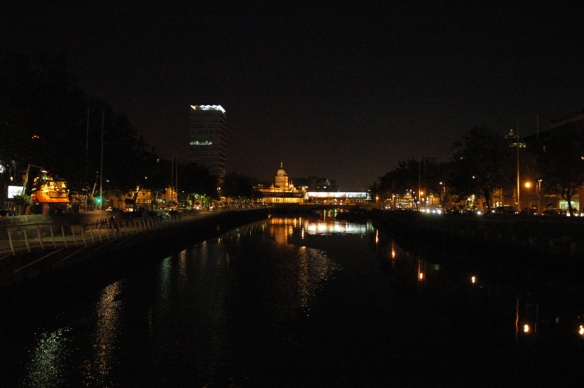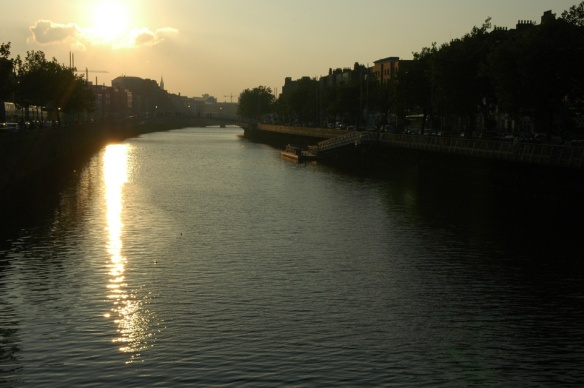R & R: Rest and Recuperation. Every aid worker’s favourite acronym.
The bright shining beacon at the end of three months in a mud hut, refugee camp or the pressure of a country head office, these three little syllables hold forth the promise of a return to normalcy, or at least a couple of weeks on a beach somewhere, drinking margaritas until you forget about the intensity of it all for a while.
A couple of years ago a wise and experienced friend told me that the humanitarian system is geared around taking people who are energetic, hard working and care too much and wringing it out of them. There was a wry smile as my friend imparted his semi-serious warning but now, a year down the line, and I can see that there was a grain of truth to his pronouncement nevertheless.
Before I came to South Sudan I thought of R & R as something of a humanitarian perk. A bit of cash to fly somewhere interesting, a few additional days leave to explore the more pleasant corners of whichever region you find yourself posted. Something worthwhile and enjoyable, sure, but by no means essential.
Now, however, I have seen too many of my friends and compatriots burnt out and exhausted. Unwilling to give up until the next target has been met, the next grant secured, they keep going and keep going until they come to a sudden and abrupt halt.
There is joy to this life, of course – joy and the privilege of service which I wrote about in my first few months are very much present. But self-care is mostly an abstract concept in this line of work, and saying no often doesn’t come easy, or without a cost – for you, for the project, or the beneficiary – or so our inflated sense of self says, at least…
And so the very drivers which make people want to do this humanitarian thing can be the thing which pushes them that step too far.
I have read several critiques of humanitarian work in which the author pins the emotional hook of the piece around their disdain at the sight of an aid worker walking around a refugee camp or similar with a hangover on a Sunday morning, as if this were somehow an abnegation of their duty to or belief in humanity.
I now see that this is getting the whole thing back to front and upside down. The desire to escape for a brief moment is not a dereliction of duty but a very human response to the inevitable suffering with which you are confronted, or undergo yourself. At some point there must be a break, or something will snap.
A friend, more eloquent than I, summed it up perfectly:
People sometimes say to me, ‘it [aid work] must be so rewarding’. More like a sense of pouring cement into an ever-widening crevice. Even as we struggle to cover the very basics, the feeling is that we are barely papering over the cracks of problems much deeper than we can begin to address. Hence the sense of barely suppressed despair that is palpable among many aid workers.
After only a week off in my first seven months, I was running on empty myself when I first went home, at Christmas.
Home has much to recommend it, all of which is highlighted and intensified after three months of long drops and boiled goat. The bitterness of freshly ground coffee, leavened with a single sugar. The warmth of a city wrapped up for Christmas, all knitted jumpers and sparkling lights. Old friends and familiar places, weighted with memory.
But the return brings with it its own particular set of challenges.
The past few times I have come back I have alighted in London, and the drop off point is jarring.
One week – Jonglei: mud huts, pitch black nights filled with stars and drumming and the occasional Antonov overhead, carrying with them portents and probably weaponry.
The next – London: several million people jostling for position, watched over always by false advertising, everyone constantly in motion, seemingly with little destination. Everything seems at once familiar and artificial, a little too real to be trusted.
When you are away, relationships get put on hold, and the details that are missed between the frames of the time lapse snapshot can be hard to recreate upon return.
This disjunct, the sense of being an outsider looking in on your own life, is strange and unsettling.
One of my closest friends, who had herself left behind the comfort of the familiar in the past year, put the word on it thus:
When you are so far away, even if you are doing what you want to do, there is a certain element of holding a part of yourself very still and careful until you are safe back in a place where you can fall apart and let all the shit you had to go through take its toll.
I have termed the adjustment period Mud Hut Head – it takes a while to build up the courage to poke your head outside again, and after so much time spent in a particularly intensive environment and headspace, the results when you do are not always pretty.
But I am incredibly fortunate to have friends magnificent enough to offer me the patience and love and space that I require, and help me tease out the threads and patterns that have begun or been exacerbated by the muddied surroundings.
In essence, R & R, this return, it offers an essential lifeline, providing a run-up to get you through the insecurity, under-resourcing and eighteen hour days.
In the absence of systematic pastoral care or psycho-social support structures, R & R is an essential attempt to enable people to rest and forget in healthy, rather than destructive, ways.
It enables you to find the joy in the thing again. Otherwise, what’s the point? It is near impossible to offer anything of value from a place of emptiness or exhaustion.
And so I find myself back in Jonglei, with an immediate procession of targets and reports, infinitely grateful for the rest I have just received.
Deep breath.

